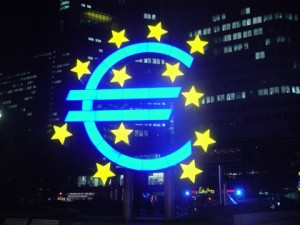 When in 1992 the decision to provide Europe with the single currency was adopted, voices were raised claiming that it may be difficult to have a monetary union without a political union. This is considered to be particularly the case on occasion of “asymmetric shocks” which may hit weaker “peripheral economies” in a monetary union, but not stronger “core ones”.
When in 1992 the decision to provide Europe with the single currency was adopted, voices were raised claiming that it may be difficult to have a monetary union without a political union. This is considered to be particularly the case on occasion of “asymmetric shocks” which may hit weaker “peripheral economies” in a monetary union, but not stronger “core ones”.
The Eurozone, even at its infancy, has never constituted an Optimal Currency Area, but at a time of relative economic growth the Stability and Growth Pact (SGP) was by most considered as a sufficient tool to secure the sustainability of the single currency. However, the economic crisis of the early 2000s and the current “Euro crisis” have proved the opposite. The authority of the SGP has been constantly reducing as long as even larger countries such as Germany and France struggled to live up to their commitments in terms of Deficit and Deficit/GDP ratio.
It cannot be excluded that those structural deficiencies, instead of being considered as mere obstacles, may have been looked at by the fathers of the Euro as the opportunity to inscribe between the lines of the Maastricht Treaty an even deeper political project. In other words, in the medium term an imperfect monetary union would have pushed further the process of European integration, if only because of the need to secure the sustainability of the monetary union itself, and because of the eventual economic and symbolic costs of reverting to national currencies.
It is certainly difficult to test such a hypothesis. Nonetheless, what can be observed is that “saving” the Euro has triggered European nations to discuss options and adopt measures that, until only a few months ago, were completely off from the agenda. A first taboo fell when the first -and second- “bailout” packages were set up to support struggling Eurozone countries (i.e. Ireland, Greece, Portugal), whose financial situations were further exacerbated by the increasing borrowing costs resulting by the downgrading of some of their debt by “three sisters”. Another taboo to fall was allowing the ECB to buy Member States’ bonds on the secondary market, something that has now become nearly a custom if we consider that last week the ECB bought bonds worth €22bn. The debate on issuing “Eurobonds” is also increasingly heated, with commentators including Nobel Prize winner Josef Stiglitz considering it as the most viable solution out of the crisis. From their part, the German Chancellor and the French President during their meeting on August 16th have demonstrated to be still reticent on making such a move, but have not excluded the opportunity of crowning the process of European economic integration with a similar tool in the future.
In this perspective, the proposals of introducing an EU tax on financial transactions, the idea of including a “golden rule” of budgetary balance in national legislation, as well as the decision to support the creation of a permanent Eurozone Council, are arguably all steps paving the way to issuing of Eurobonds. Certainly, any of these measures will need to be ratified by Member States, but it has become increasingly clear that the crisis is making Member States keener to give up some of their sovereignty if this may help them to calm down the markets and escaping from the crisis. Questions remain, however, on the role that the European Commission will play in the process, particularly in light of the proposal of appointing the President of the European Council at the head of the Eurozone Council. More in detail, it is still to be seen whether the “community method” will be preferred to the intergovernmental one.
In any case, to face the financial crisis and the underneath change in the balance of powers in the global economy, it has become increasingly evident that there is no other durable solution for the European economy(ies) than to move towards further fiscal and budgetary integration. This constitutes a major challenge for the EU, but has the potential to set off a new phase of prosperity in Europe, boosted by larger market efficiencies, higher economic and political stability and stronger economic growth.








No Comment